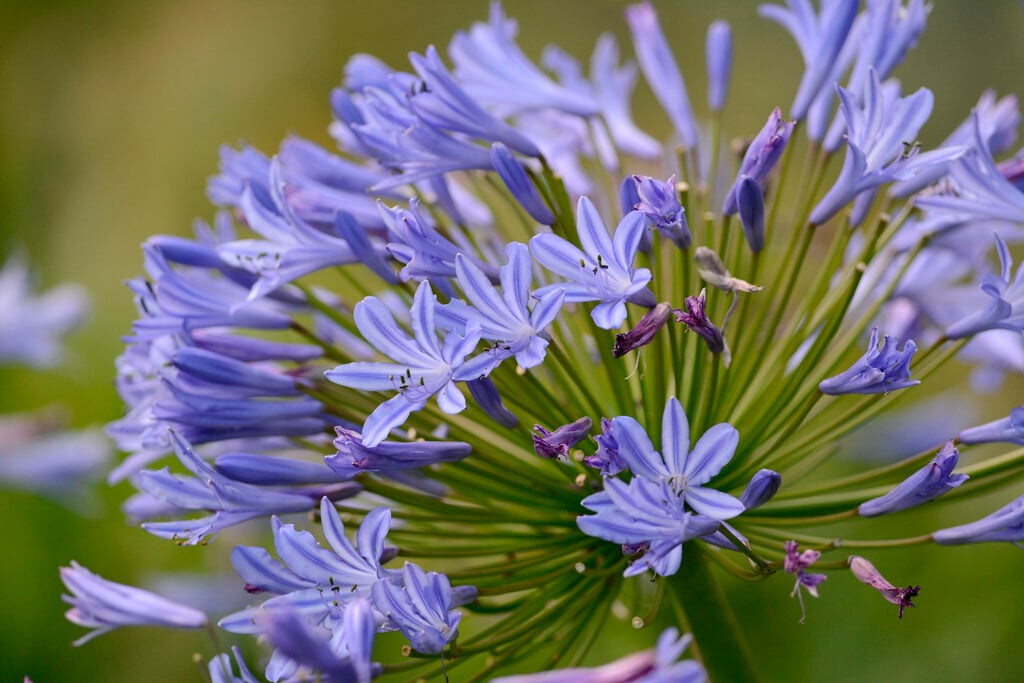Agapanthus praecox
precocious African lily
A clump-forming, evergreen, herbaceous perennial producing narrow, strap-shaped green foliage, to a height of around 80cm (32in) and a spread of around 60cm (24in). Hemispherical heads to 12.5cm (5in) in diameter, of clear blue, funnel-shaped flowers are produced in late summer on straight, green stems up to approximately 1.5m (5ft) high. As an evergreen species, it is more frost tender than the deciduous types and requires protection from frost in winter, especially when grown in colder areas
Size
Ultimate height
1–1.5 metresTime to ultimate height
2–5 yearsUltimate spread
0.5–1 metresGrowing conditions
Moisture
Well–drainedpH
Acid, Alkaline, NeutralColour & scent
| Stem | Flower | Foliage | Fruit | |
| Spring | Green | |||
|---|---|---|---|---|
| Summer | Blue | Green | ||
| Autumn | Green | |||
| Winter | Green |
Position
- Full sun
Aspect
South–facing or West–facing
Exposure
Sheltered Hardiness
H2Botanical details
- Family
- Amaryllidaceae
- Native to GB / Ireland
- No
- Foliage
- Evergreen
- Habit
- Clump forming
- Potentially harmful
- Al parts of the plant are harmful if eaten
- Genus
Agapanthus are clump-forming perennials with narrowly strap-shaped leaves, evergreen in some species, and erect stems bearing umbels of funnel-shaped blue or white flowers
- Name status
Correct
How to grow
Cultivation
Grow in fertile, moist but well-drained soil in full sun. In cold areas provide winter protection, or if grown in containers, move them into a frost-free position to overwinter. See agapanthus cultivation for further advice
Propagation
Propagated by division or propagate by seed at 13-15°C when ripe or in spring.
Suggested planting locations and garden types
- City and courtyard gardens
- Mediterranean climate plants
- Wildlife gardens
- Banks and slopes
- Flower borders and beds
Pruning
No pruning required other than to remove any dead foliage or spent flower heads
Pests
May be susceptible to slugs and snails and agapanthus gall midge
Diseases
May be susceptible to a virus
Get involved
The Royal Horticultural Society is the UK’s leading gardening charity. We aim to enrich everyone’s life through plants, and make the UK a greener and more beautiful place.
